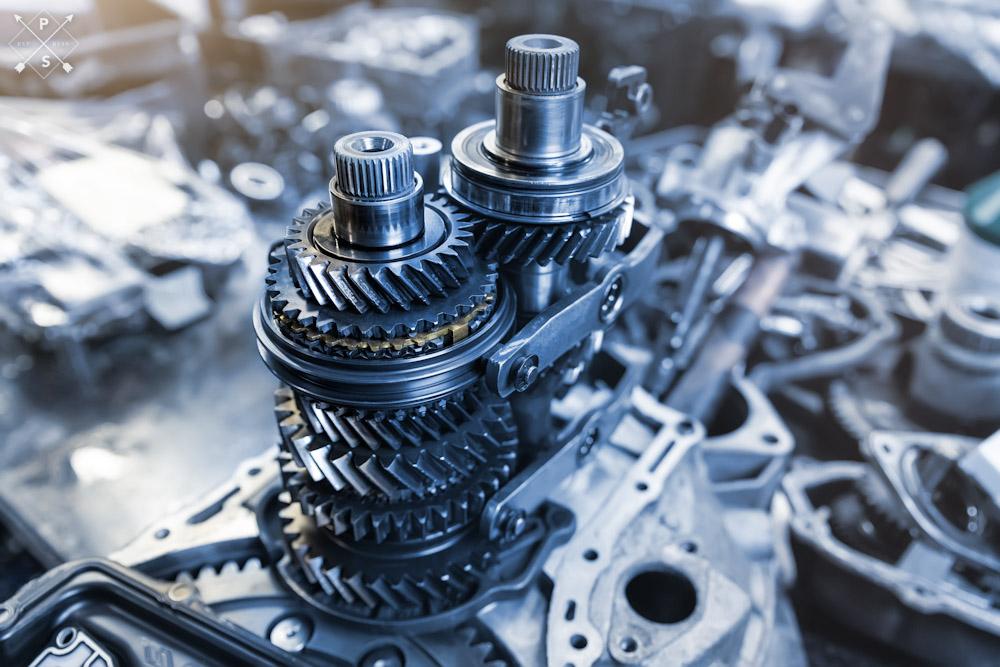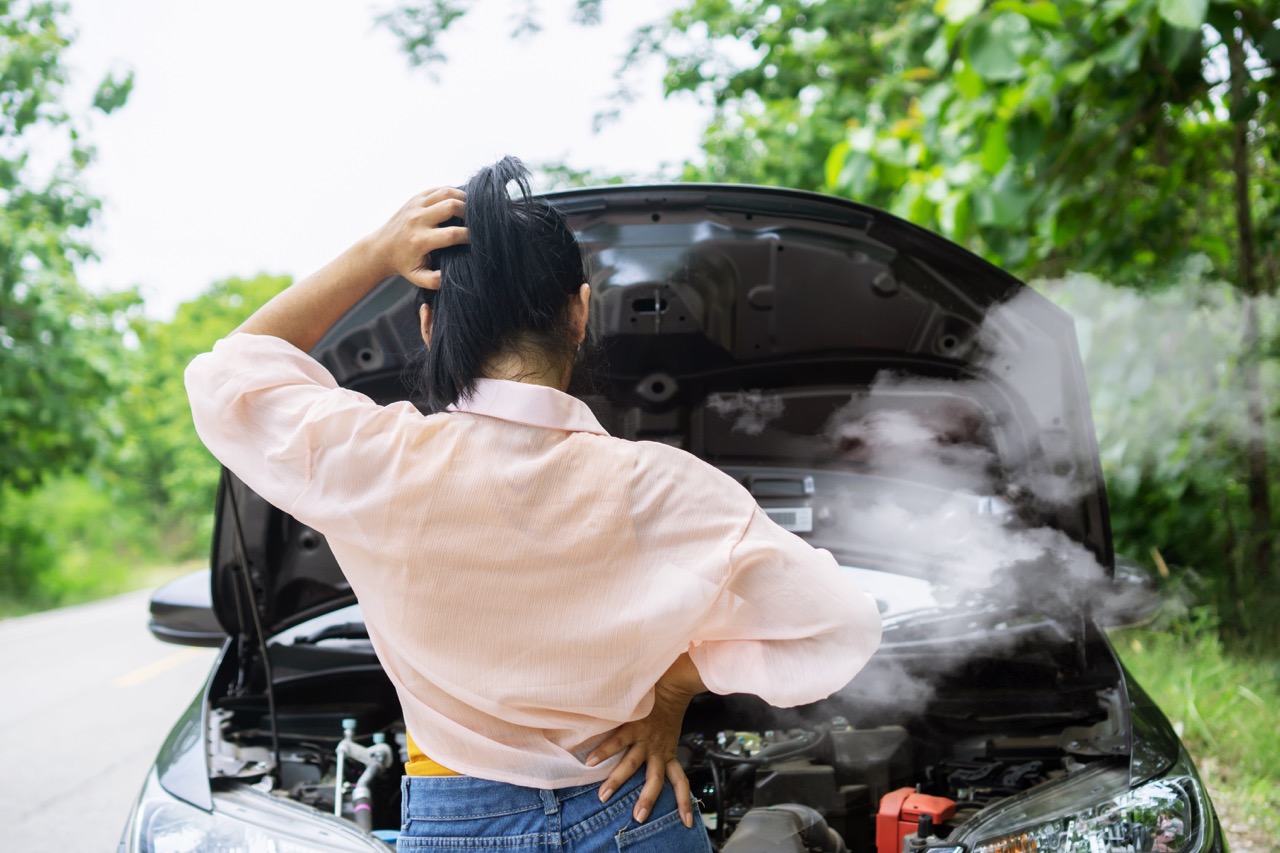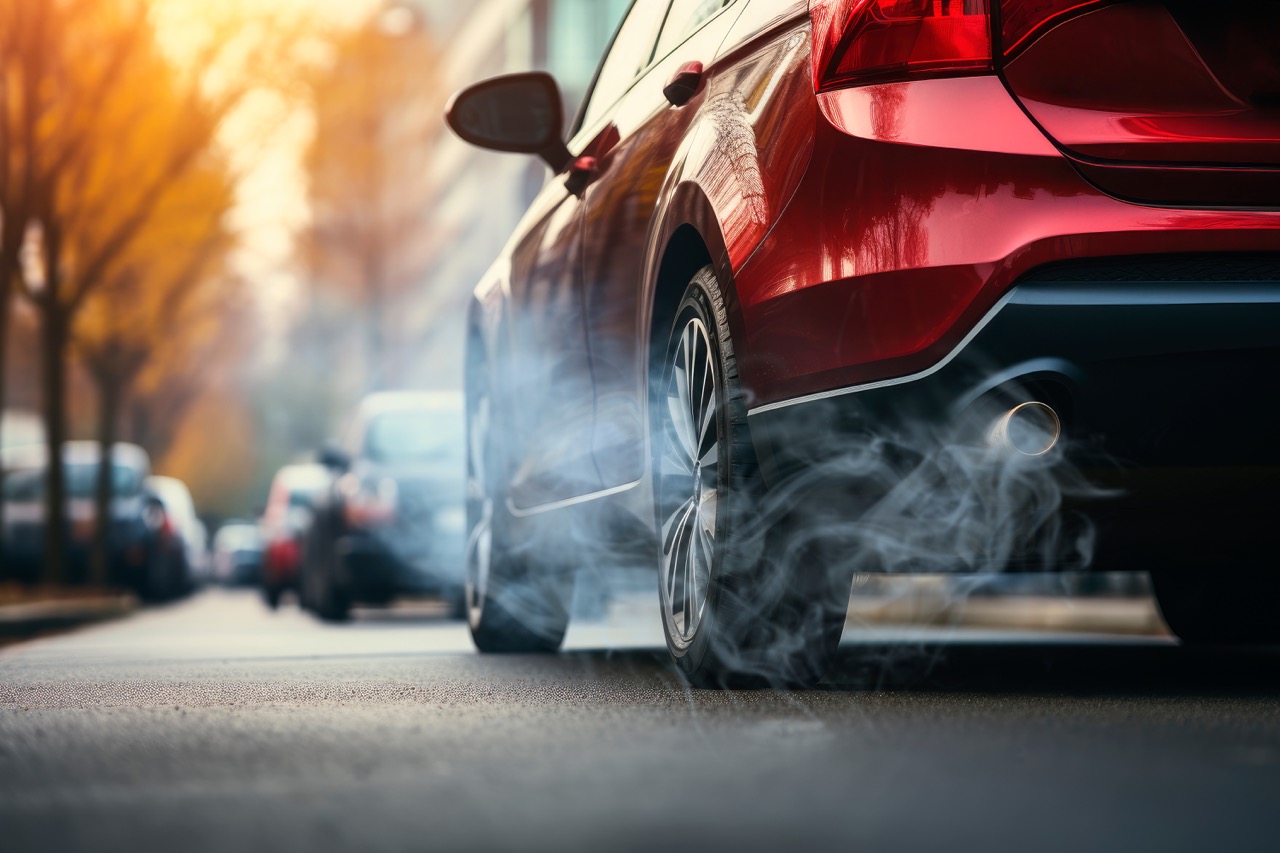
Your vehicle’s transmission is responsible for harnessing your engine’s power. It allows the car to change gears, and to smoothly resume motion after a stop. The transmission also helps a car work efficiently at high speeds. For these reasons, it’s important to keep your transmission healthy.
Warning Signs of a Faulty Transmission
How do you know whether or not your transmission is failing? There are a number of warning signs that even a novice driver can identify. If you have questions, contact the Orem car repair experts at Master Muffler today.
Problems Shifting Gears
Whether your drive a manual or automatic transmission, if your car has trouble getting into or staying in gear, the transmission may be faulty. You may notice your vehicle jerks or shakes when trying to shift, or there may be audible grinding sounds during shifting.
In a manual transmission, you might find the clutch pedal engages before you hit the floor, meaning you’re shifting gears “low” or “high.” If that’s the case, you might have a hydraulic leak in your transmission system, worn discs, or worn plates.
Leaking Fluid
Your transmission fluid is red, so if you notice a puddle under your car it may be a warning sign. The transmission itself might be fine, but the leak could be coming from a punctured cooler line. You may have a broken gasket or seal that’s allowing transmission fluid to leak, which can lead to bigger problems with your car. Signs of a leak could also be a burning smell.
Engine Revving
If your vehicle is parked but you notice the engine is revving higher than usual, it’s time to take a look at your transmission. Your dashboard has an indicator for revolutions per minute (RPM) and if the needle hovers in the red you’ll want to see a mechanic.
Strange Sounds
To go along with your car jerking or shuddering when shifting, you might also hear strange new sounds from under the hood. In addition to grinding sounds, your vehicle might buzz, clunk, or hum.
Loss of Power
A dead battery or alternator isn’t the only reason your car loses power. Sometimes it’s a sign your transmission is bad. If the engine turns over but you don’t have power to the cabin, it could be related to your transmission. Sometimes your car’s computer cuts power to the cabin to protect the car when it detects engine trouble
When to See a Mechanic
Regardless of the signs you notice in your car, don’t wait to see a mechanic! Preventive maintenance is usually less expensive than allowing the problem to turn into bigger car repair needs. For transmission maintenance and other Orem car repair needs, give us a call.
Transmission Maintenance
There are a few things you can do to maintain the health of your transmission. Our Orem car repair team recommends the following.
Check Transmission Fluid Levels
Did you know that many transmissions have a dipstick so you can easily check fluid levels yourself? It’s like checking your engine’s oil; just pull out the dipstick and wipe it clean. Reinsert into the transmission and pull it out a second time. Note where on the dipstick the fluid hits, and if it appears discolored or has a weird smell. You want to ensure you have the proper amount of fluid to keep your transmission lubricated and cool.
Your vehicle might benefit from annually flushing transmission fluid and coolant, and changing the air filter. Much like an oil change, replacing your transmission’s fluids can enhance its performance and increase its lifespan.
Use Additives
Just like motor oil, transmission fluid can be enhanced with additives. To reduce friction in the transmission, consider a friction modifier. This additive can also reduce the noise produced by the clutch.
Keep it Cool
There’s a lot of heat under the hood of your car, and while the components that propel your car are designed to withstand it, auxiliary coolers can help. If you use your vehicle for hauling, an additional cooler can keep the rubber seals from cracking and can prevent the clutch itself from overheating. Cooler line filters can also aid in keeping your engine cool, and free from debris that increases friction.
Another way to keep your transmission cooler is to regularly service your vehicle’s cooling system as a whole. Be sure you keep your coolant topped off, and have a car repair expert check for leaks routinely.
Avoid Driving Aggressively
If you’re in the habit of changing gears while you drive, you’ll want to curb that habit if you have an automatic transmission. While a manual transmission does allow you to push in the clutch pedal and change gears while in motion, an automatic transmission is not designed to do so. Avoid excess wear on your transmission by only shifting gears while at a complete stop.
As with most costly repairs, transmission work can be avoided with routine maintenance. Keep your transmission healthy by following the advice of your trusted Orem car repair team at Master Muffler.
Related Posts
As an EV owner, understanding your vehicle's battery is critical. From its capacity to its lifespan, and everything in between, we'll guide you through what you need to know to optimize your EV experience. So buckle up and get ready - we're about to shed some light on the electrifying world of EV batteries. What [...]
If your car is running hot, it can be a sign that something’s not right with your engine. Fortunately, diagnosing the cause of an overheating engine isn't too difficult if you know what to look for and how to address it. Keep reading if you want to learn the most common issues that occur when [...]
Your vehicle's exhaust system serves a critical role in managing the byproducts of the combustion process and ensuring optimal engine performance. The appearance of colored smoke from the exhaust pipe, either when stationary or accelerating, can provide valuable clues to underlying mechanical issues. What is a car exhaust? A car exhaust is a system [...]





